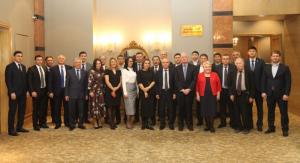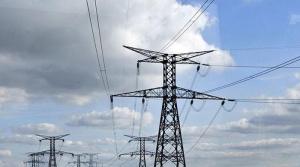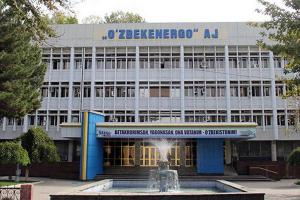
In June 2020, EUPP established a new USEA-Central Asia Partnership to provide technical assistance to Central Asian countries to assist them with meeting their regional energy security priorities and to support USAID regional programming. The objectives of the partnership activities are to enhance the capacity of regional stakeholders for integration of renewable energy generation to meet regional governments’ renewable energy targets; to improve their capacity for system modeling and long-term planning required for the establishment of an interconnected regional power system; to help prepare regional stakeholders for the challenges related to the digitization of manual energy processes and associated cyber-security issues; and to support existing and planned USAID programming on power market development to create an enabling environment for the establishment of a viable regional electricity market.
This assistance will be provided through the two workstreams, regional and bilateral. While bilateral programs will be implemented in four countries - Kazakhstan, Kyrgyzstan, Tajikistan and Uzbekistan, the assistance will also target Turkmenistan within the regional component.
Results
Uzbekistan and Tajikistan Expanded Capacity to Model Power Systems and Integrate Renewable Generation
EUPP provided the National Electricity Transmission Company (NETC) of Uzbekistan and the Electricity Transmission Network (ETN) company of Tajikistan with dynamic models of their power systems for the existing network topology, and with planning models – static and dynamic – for 5- and 10-years horizons to include planned renewable generation. These models will help achieve improved efficiency, stability, and reliability of the national grids, resulting in reduced power outages and fewer network interruptions, creating an enabling environment for expanded integration of renewable generation and the establishment of a unified power system in Central Asia.
Kazakhstan Strategic Roadmap for Adopting a Digital Substation Technology
The Kazakhstan Electricity Grid Operating Company (KEGOC) received a comprehensive review of currently available digital substation technologies, including best international practices and SWOT analysis, suggestion of an optimal technology for implementation in Kazakhstan, assistance with selecting a substation to host a pilot application of the technology, and a strategy roadmap for integrating the technology throughout KEGOC’s system. In the long term, this will enhance the capacity of KEGOC for reliable and efficient operation of Kazakhstan’s national electric grid, improving reliability and efficiency and reducing operational costs.
Peer Reviews of Draft Kyrgyz Documents on Wholesale Electricity Market Development
EUPP conducted a peer review of the draft Wholesale Electricity Market Concept and the Rules of the Wholesale Electricity Market of the Kyrgyz Republic, developed by the Kyrgyz Electricity Settlement Center (KESC). This review provided KESC with recommendations to refine these concept papers and improve the initial design of the wholesale electricity market and associated institutions. This activity helps create an enabling environment for the establishment of a viable regional electricity market and facilitate regional power trade to lower wholesale energy costs and improve energy security in all Central Asian states.
Regional Stakeholders Provided with Enhanced Network Planning and Modeling Capabilities
With USAID funding, the USEA – Central Asia Partnership provided the regional Coordinating Dispatch Center (CDC) Energia, the National Electricity Transmission Company of Uzbekistan, and Barqi Tojik of Tajikistan with additional modules of the DIgSILENT PowerFactory software. This software will expand technical capabilities, enhance the capacity of these regional stakeholders for system modeling and long-term planning required for the establishment of an interconnected regional power system, and improve their capacity for integration of renewable energy generation to meet regional governments’ renewable energy targets. In the long term, this software will result in improved efficiency of national grids, reduced power outages and network interruptions, and improved overall stability and reliability of Uzbekistan and Tajikistan’s electric grids, as well as strengthen these countries’ energy security due to expanded renewable generation. They will also allow Tajikistan and Uzbekistan to prepare their networks to be merged into a single regional power system, in accordance with regional governments’, USAID and other international donors’ goals.







